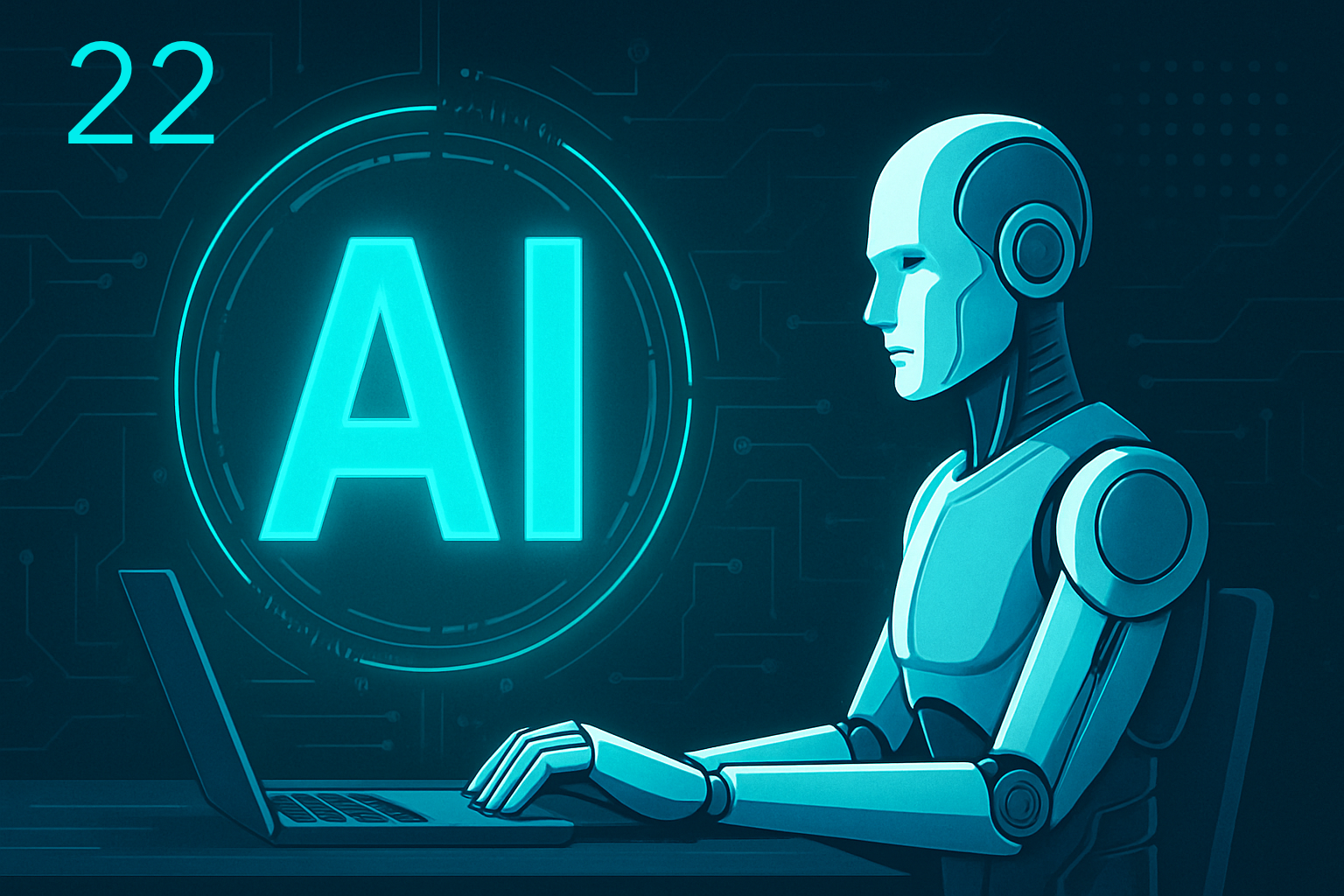
AI News Week 22
Top 5 AI News Stories from the Past Week
As we dive into another week of significant developments in the realm of artificial intelligence, we highlight the stories that stood out for their impact and future implications. Here are the top 5 AI news stories from the past week.
1. Google DeepMind Unveils AlphaCode: The Next Generation of Code Generation
In an unexpected announcement, Google’s AI research lab, DeepMind, introduced AlphaCode, a system designed to write computer code in multiple programming languages. This AI tool not only drafts code but also engages in problem-solving competitions, showcasing its capability to understand complex tasks.
Why It Matters: The release of AlphaCode marks a significant advance in AI’s ability to contribute to software development. With automation poised to streamline coding processes, this could reshape the tech landscape, making coding accessible to non-specialists and drastically speeding up development times.
2. OpenAI Launches GPT-4.5: A Leap Forward in Conversational AI
OpenAI made waves with the release of GPT-4.5, the latest iteration of its generative language model. This version promises improved contextual understanding and a reduction in bias in responses, based on extensive user feedback and rigorous testing.
Impact: The improvements in GPT-4.5 could lead to more reliable applications in customer service, content creation, and education, enhancing the user experience and broadening the scope of AI’s practical applications. However, it poses further ethical considerations about misinformation and the responsibilities of developers.
3. AI Ethics Board Initiatives Gain Traction Globally
In a noteworthy shift, several governments are establishing AI ethics boards aimed at navigating the complexities of AI deployment. Countries, including the US and members of the EU, are pushing for frameworks that emphasize transparency, fairness, and accountability in AI technologies.
What’s Next: This could mark a turn towards more robust regulation in the AI sector, spurring innovation while ensuring ethical considerations are at the forefront. As governments grapple with the challenges posed by rapid AI advancements, a balance will be essential to foster public trust and innovation.
4. IBM’s Watson Health Expands AI Capabilities in Healthcare
IBM announced significant upgrades to Watson Health, integrating advanced AI algorithms for better predictive analytics in patient care. This enhancement focuses on internal medicine and aims to identify potential health risks before they become critical.
Implications: The integration of sophisticated AI in healthcare can greatly improve patient outcomes and operational efficiency. However, it raises questions about data security and the ethical implications of AI decision-making in life-and-death scenarios.
5. Meta’s AI Research Team Releases New Model for Realistic Image Synthesis
Meta’s AI division unveiled a groundbreaking model that enhances the realism of AI-generated images by mimicking photorealistic qualities with unprecedented precision. This release indicates a major leap forward in generative adversarial networks (GANs).
Why This Is Significant: The ability to create hyper-realistic images opens doors in numerous fields, including gaming, virtual reality, and advertising. Yet, it also stirs concerns over deepfakes and potential misuse, which necessitates urgent discussions around regulation and technology use.
These AI developments from the past week showcase the rapid evolution of technology and its potential to transform various sectors while also raising crucial ethical and regulatory questions for stakeholders. The coming weeks will be essential in determining how these technologies are integrated and governed in our society.